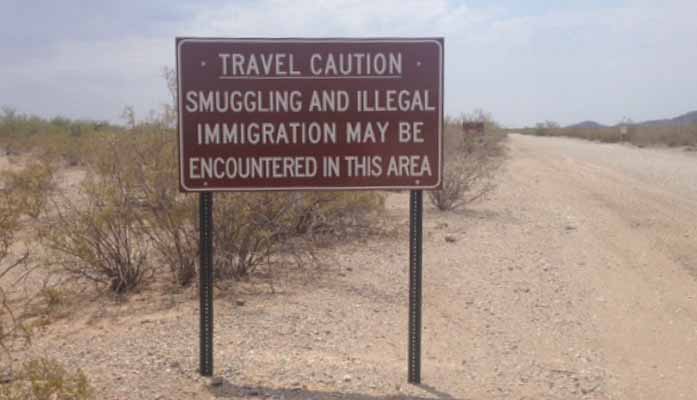
by Jonathan Eberle | Jul 6, 2025 | News
By Jonathan Eberle |
Governor Katie Hobbs signed legislation Wednesday creating a new Independent Correctional Oversight Office for Arizona’s prison system—but critics say the move rings hollow, as the Governor declined to provide any funding to make the office functional.
Senate Bill 1507, introduced by Senator Shawnna Bolick, was designed to increase accountability and transparency within the Arizona Department of Corrections, Rehabilitation and Reentry (ADCRR). The bill comes amid heightened scrutiny of the state’s prison system following recent inmate deaths and reports of systemic failures.
But while the bill was signed into law, supporters say its impact has been effectively neutralized by the Governor’s refusal to allocate funding to the new office. “I’m glad to see Senator Bolick’s SB 1507 signed into law. This is a long-overdue step toward accountability in our corrections system,” said Rep. Walt Blackman. “But a law without funding is just a press release.”
Senator Bolick, who chairs the Senate Regulatory Affairs & Government Efficiency Committee, expressed frustration with the Governor’s decision, accusing her of prioritizing appearances over action.
“Signing a bill and refusing to fund it is like buying a car and not putting anyone in the driver’s seat,” Bolick said. “The Governor is selling the illusion of progress while withholding the tools the office needs to function.”
The oversight office was envisioned as a neutral body to monitor Arizona’s prison system, investigate abuse, and ensure transparency—functions advocates say are urgently needed.
Supporters of the bill argue that the Governor’s rejection of all related budget requests undermines the very accountability the legislation was meant to establish. Without staff, resources, or operational funding, the office exists only on paper.
Bolick is now urging the Governor to take immediate steps to rectify the situation, suggesting Hobbs find funds either within her own office or by reallocating money from another agency.
“If she believes in this office,” Bolick said, “she needs to fund it.” For now, the Independent Correctional Oversight Office remains a concept without a functioning framework—leaving reform advocates wondering when, or if, oversight will become reality in Arizona’s prison system.
Jonathan Eberle is a reporter for AZ Free News. You can send him news tips using this link.

by Jonathan Eberle | Jul 5, 2025 | News
By Jonathan Eberle |
Arizonans will have the final say on whether drug cartels should be classified as terrorist organizations under state law, following the passage of House Concurrent Resolution 2055 by the Arizona Legislature. The measure, championed by House Speaker Steve Montenegro (R-LD29), will appear on the November 2026 general election ballot.
The resolution calls for the state of Arizona to formally recognize transnational cartels as terrorist organizations and directs the Arizona Department of Homeland Security to use every available tool to combat their operations. If approved by voters, the designation would not carry federal legal weight but would signal Arizona’s position on the issue and potentially influence state-level enforcement priorities.
“These cartels run brutal, organized operations that traffic women and children, flood our streets with fentanyl, and kill without consequence,” said Speaker Montenegro. “Arizona is on the frontlines of a war…By sending it to the ballot, we’re putting the decision where it belongs—with the people.”
Supporters of the measure say it reflects a growing public concern about border-related crime, fentanyl overdoses, and human trafficking. According to statistics cited by the resolution’s backers, U.S. Customs and Border Protection encountered 282 individuals on the terrorist watchlist at the southern border from 2021 to 2023—a sharp increase compared to previous years. Meanwhile, fentanyl seizures and related overdose deaths continue to climb.
The proposed ballot measure is part of the House Republican Majority Plan, which emphasizes border security and law enforcement. GOP lawmakers argue that Arizona must act independently to address what they see as federal inaction on border issues.
“House Republicans are taking action to protect Arizona,” Montenegro said. “We trust voters to make their voices heard and stand with us in this fight.”
Proponents insist that the measure would send a strong message and help marshal additional state resources to combat cross-border crime. Voters will weigh in on the measure during the 2026 election. If passed, Arizona would become one of the first states in the nation to define international cartels as terrorist groups under state law.
Jonathan Eberle is a reporter for AZ Free News. You can send him news tips using this link.

by Jonathan Eberle | Jul 4, 2025 | News
By Jonathan Eberle |
Federal prosecutors in Arizona charged 164 individuals last week with immigration-related offenses as part of a concentrated enforcement effort targeting illegal entry, re-entry, and human smuggling. The charges stem from coordinated operations that took place from June 21 through June 27, according to the U.S. Attorney’s Office for the District of Arizona.
The bulk of the cases involved illegal re-entry by previously deported individuals (84 cases) and unlawful entry into the United States (71 cases). Additionally, nine people were charged with smuggling others into or through Arizona.
The enforcement activity is part of Operation Take Back America, a national Department of Justice initiative aimed at combating illegal immigration, dismantling transnational criminal organizations, and increasing public safety. The operation brings together resources from federal law enforcement agencies, including U.S. Border Patrol, Immigration and Customs Enforcement (ICE), the FBI, DEA, U.S. Marshals Service, and the ATF.
Among the individuals charged is Jesus Alfred Salazar-Ruiz, who allegedly attempted to flee Border Patrol agents near the U.S.–Mexico border. Authorities say Salazar-Ruiz crashed through fencing and sped down a dirt road before abandoning his vehicle. He was later found with the vehicle’s keys in his possession, and three illegal alien passengers were also located. Salazar-Ruiz faces charges of transporting illegal aliens for profit.
In a separate case, Miguel Angel Mezo-Antele, a Mexican national, was apprehended while allegedly transporting four illegal individuals across Arizona with plans to drop them off in California and Oregon. He has been charged with transportation of an illegal alien.
Also charged was Dalesio Hernandez-Bautista, who had previously been removed from the United States in 2018 after a felony manslaughter conviction in Arizona. He now faces charges of illegal re-entry.
The week-long enforcement sweep is one of the latest steps in a broader federal effort to deter unlawful immigration and hold repeat offenders and human smugglers accountable. Officials say these operations will continue in the months ahead as part of a strategy that combines legal prosecution with coordinated federal law enforcement resources.
Jonathan Eberle is a reporter for AZ Free News. You can send him news tips using this link.

by Jonathan Eberle | Jul 1, 2025 | News
By Jonathan Eberle |
A new Arizona law aims to bolster protections against foreign government interference and intimidation, marking a first-of-its-kind effort in the state to address what lawmakers describe as growing threats from hostile foreign actors.
House Bill 2374, sponsored by State Representative Quang Nguyen (R-LD1), was signed into law this week following bipartisan support. The legislation targets “transnational repression” — a term used to describe efforts by foreign governments to harass, surveil, or silence individuals on U.S. soil, often for expressing views critical of those regimes.
“This law draws a hard line: Arizona will not be a playground for foreign operatives,” Nguyen said in a statement. “Whether it’s the Chinese Communist Party or any other hostile regime, their tactics of intimidation and coercion have no place here.”
The new statute increases criminal penalties for harassment-related offenses when carried out by individuals acting on behalf of foreign powers or terrorist organizations. Crimes such as stalking, assault, and harassment receive enhanced felony designations if committed as part of an effort to silence political dissidents, religious minorities, or other individuals engaging in constitutionally protected activities.
Additionally, the law establishes a new Class 2 felony offense for any unauthorized foreign law enforcement activity conducted in the state. That includes attempts to surveil or detain individuals without express authorization from state or federal authorities.
To help detect and prevent such operations, the legislation directs the Arizona Department of Public Safety to develop a Transnational Repression Recognition and Response Training Program. The program will train local law enforcement across Arizona to identify and respond to covert foreign interference efforts.
Nguyen, who chairs the House Judiciary Committee and fled communist Vietnam as a child, described the measure as both personal and necessary.
“My family fled government repression,” he said. “I won’t stand by while foreign agents threaten people in Arizona for exercising their constitutional rights.”
The bill is part of the Republican Majority Plan in the Arizona House, which emphasizes border security, individual liberties, and public safety.
Jonathan Eberle is a reporter for AZ Free News. You can send him news tips using this link.

by Jonathan Eberle | Jun 29, 2025 | News
By Jonathan Eberle |
After weeks of political brinkmanship and competing proposals, Arizona lawmakers have approved a bipartisan state budget that combines Democratic Governor Katie Hobbs’ “Arizona Promise” priorities with over $100 million in conservative-driven spending cuts secured by House Republicans. The compromise averted a potential government shutdown.
The $16 billion spending package reflects a rare show of collaboration in a divided government, incorporating elements from both the governor’s agenda—focused on opportunity, affordability, and social services—and Republican demands for fiscal restraint, public safety funding, and government accountability.
“I am thrilled that the legislature passed the bipartisan and balanced Arizona Promise budget to expand opportunity, security, and freedom in our state,” Hobbs said in a statement. “We showed Arizonans what is possible when we are willing to reach across the aisle and deliver common sense solutions for the people of our state.”
House Republicans, meanwhile, emphasized that the final deal bears the mark of tough negotiations, resulting in meaningful structural reforms and a $100 million reduction in planned spending compared to earlier drafts.
“This revised budget isn’t the one we would have written,” said House Speaker Steve Montenegro. “But with time running out and the risk of a shutdown increasing, we fought for and secured serious improvements. We cut spending, added strong transparency requirements, and locked in public safety pay raises. Those changes matter.”
The final package maintains many of Hobbs’ original proposals while adopting Republican-backed amendments. “This was not a blank check,” said House Majority Leader Michael Carbone. “We held the line on conservative principles, cut unnecessary spending, and demanded accountability. This budget is better because of our efforts.”
While the Arizona Promise budget may carry the governor’s name, its final version reflects the realities of a politically split state government. The result is a package that funds long-term priorities across education, health care, infrastructure, and public safety, while also maintaining fiscal discipline and Republican values like limited government and transparency.
“We’ve led responsibly in a divided government,” Speaker Montenegro said. “We held the line, improved the bill, and protected the priorities of our voters.”
Jonathan Eberle is a reporter for AZ Free News. You can send him news tips using this link.





